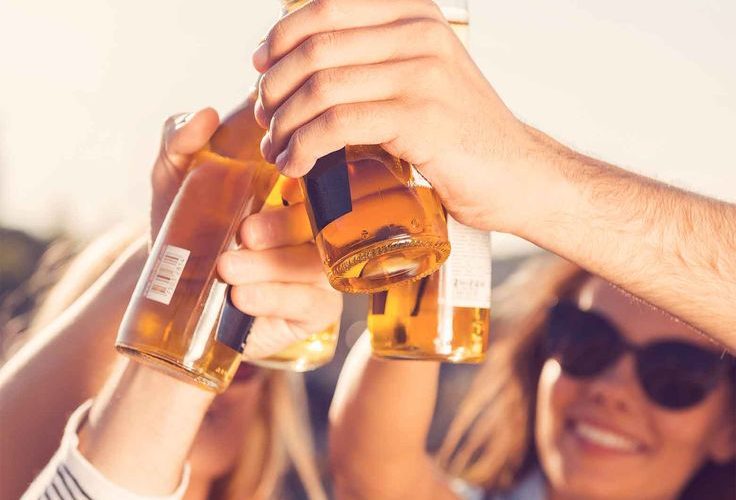Alcohol is a part of many of our lives and in a lot of cases it can become more than just a casual habit and you’re craving a pint or a glass of wine.
If that is the case, then you’re heading well and truly into problematic drinking territory, and one where you perhaps need some help from alcohol rehabilitation centres or at least need to review your relationship with the substance.
If you are struggling with cravings, then there are a wealth of tricks and tactics out there that can reduce alcohol cravings, many of which are encouraged by professionals in rehab and other addiction treatment facilities.
Mindfulness is certainly one of these tactics and utilising practices can have a big impact on quelling cravings. And here’s all you need to know as to why…
Table of Contents
What is mindfulness?
Let’s begin with what mindfulness actually is for those that aren’t sure. In a nutshell, this is the practice of paying attention to the present moment and rooting ourselves in the now.
It’s rooted itself in Buddhist traditions but is widely recommended in psychology and medicine too, teaching people to be aware of thoughts, emotions and bodily sensations without the need to react.
In the case of addiction, that means not reacting to cravings or triggers, instead focusing on breathing or other types of meditative exercise.
Understanding alcohol cravings
Adapting mindfulness to cravings, you need to also know what cravings are and where they come from. They are largely triggered by external cues, perhaps going past the pub or going down the alcohol aisle in the supermarket, or internal states like boredom or stress.
That’s when we often turn to drink, with alcohol stimulating the brain’s reward system and releasing dopamine. Which is why we then turn to it time and again, with cravings then making it harder to resist.
How mindfulness reduces cravings
So, how does mindfulness help reduce cravings then?
Awareness of triggers
Mindfulness helps people recognise the specific situations and emotions that fuel their desire to drink. For example, someone might notice that feelings of loneliness consistently spark cravings. Identifying these triggers makes it easier to anticipate and manage them.
Changing the relationship with cravings
Instead of seeing cravings as commands that must be obeyed, mindfulness reframes them as passing mental events, like clouds drifting across the sky. This shift reduces their power. A craving may still arise, but it becomes less compelling when observed calmly.
Reducing stress and negative emotions
Stress is one of the most common drivers of alcohol use. Mindfulness practices, particularly breathing exercises and meditation, have been shown to lower cortisol levels and promote relaxation. By managing stress in healthier ways, individuals are less likely to turn to alcohol for relief.
Enhancing self-regulation
Mindfulness strengthens the brain regions involved in self-control, such as the prefrontal cortex. Over time, this makes it easier to pause, reflect, and resist automatic impulses to drink.
Encouraging compassion
Many people struggling with alcohol use experience guilt and shame, which can in turn trigger further drinking. Mindfulness fosters self-compassion, allowing individuals to treat themselves with kindness rather than criticism. This reduces the emotional burden that often perpetuates cravings.
Evidence from research
Several clinical studies have explored mindfulness-based interventions for alcohol use disorder. Programmes such as Mindfulness-Based Relapse Prevention (MBRP) combine meditation practices with cognitive-behavioural strategies. Results suggest that participants who learn mindfulness techniques experience fewer cravings, drink less heavily, and are more resilient against relapse compared with those relying solely on traditional treatments.
Even short daily practices, such as ten minutes of mindful breathing, have been shown to reduce the intensity of urges and improve emotional regulation.
Practical ways to apply mindfulness
If you think mindfulness could help you, then there are various ways in which you can apply it to help your cravings. Among the simplest, and easiest to practice are:
- Mindful breathing: When a craving arises, focus attention on slow, steady breaths. Observe how the urge feels in the body and notice it fading with time.
- Body scans: Pay attention to sensations throughout the body, noting areas of tension or restlessness without judgement.
- Urge surfing: Imagine the craving as a wave that rises, peaks, and eventually falls. Ride it out rather than trying to push it away.
- Daily practice: Setting aside a few minutes each day to meditate can build resilience and make mindfulness easier to apply in challenging moments.
By practicing these you can really help with your cravings and help keep your addiction in check and ensure you’re living the healthiest and happiest life you possibly can.

